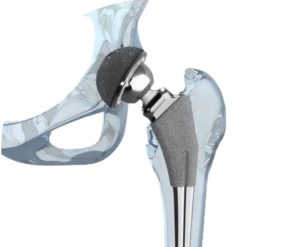One of the complications that patients with a defective DePuy Orthopaedics hip implant may face is metallosis, a condition in which metal particles build up in the tissue around the implanted joint. Thousands of patients with these recalled implants will require revision surgery to replace the device.
Symptoms of metallosis include:
- Pain around the implanted hip
- Difficulty with walking, standing and other motions
- Swelling and inflammation around the implant area
- Rash that is a an indicator of dying tissue
Those symptoms may indicate these severe problems:
- Loosening, when the implant does not stay attached to the bone in the right position.
- Fracture, where the bone around the implant may have broken.
- Dislocation, where the two parts of the implant that move against each other are no longer aligned.
- Damage to nerves, tissue and muscles near the implant.
Background of the hip recall
The hip implants in question are as the ASR XL Acetabular System and DePuy ASR Hip Resurfacing System. In August 2010, the DePuy Orthopaedics company, a subsidiary of Johnson & Johnson, issued a voluntary recall of two hip replacement systems. DePuy stated that “13 percent of patients (1 in 8) who had received the ASR total hip replacement needed to have a revision surgery.”
How metallosis develops
As the ball and the socket of the implant rub against each other, friction scrapes off microscopic ions of cobalt and chromium, which enter the lubricating fluid that surrounds joints. These particles disperse and accumulate in nearby parts of the body, and also flow through the bloodstream.
The immune system reacts to the metal ions by automatically inflaming the area around the debris. The inflammation is the body’s attempt to contain the foreign particles in the inflamed area so the metal can’t spread to the rest of the body.
How metallosis affects the body
During revision surgery, doctors often find dense black staining of the synovial membrane and surrounding muscles. The membrane is a sac filled with fluid that helps the joint move freely. It appears that with faulty DePuy hip implants, the immune system sometimes inflames cells in the synovial membrane, causing synovitis. Synovitis is painful, since the inflammation prevents the joint from rotating properly.
Surgeons also often find pseudotumors, masses of inflamed cells that look like tumors. They can be either solid or fluid-filled and have been found more commonly in women. Patients who had pseudotumors usually had gradually increasing pain.
Doctors have also found greatly elevated levels of cobalt and chromium in hip revision patients. Both metals have been linked to cancer, and cobalt poisoning (cobaltism) has serious side effects including neurological (brain) damage, heart irregularities, and seizures.
The dangers posed by the DePuy hip implant failure become ever more disturbing as time goes by. DePuy has offered to cover “reasonable and customary costs of testing and treatment, including revision surgery,” and to reimburse patients for “reasonable out-of-pocket expenses.”
Obviously the damage that can potentially be caused by one of these defective devices is far greater than that. The severity of the health issues involved and DePuy’s limited offer of compensation mean you need the counsel of an expert hip-replacement attorney. The Egerton Law firm and its personal injury attorneys want to help. You can contact us at the Egerton Law website. Or call us at 336-273-0508 or 800-800-4LAW. E-mail me at le@egertonlaw.com. We will do what it takes to get you a fair and just settlement.
You will always speak to an attorney on your first call.
Media links:
New York Times:
More information from Egerton Law:
Documents requesting access to your medical records (Which you should not sign.)
Why you must retain possession of your hip joint (explant) after surgery.
The story of a lost explant.










One Comment
Kevin Duffan
It seems like there is no end in sight for the danger of hip DePuy replacements. In fact, 1 in 8 people who used these DePuy hip replacements needed a repair within five years, according to arthritistoday.org.
This is shockingly high considering most people who receive a hip replacement don't need another replacement for the rest of their life.
Comments for this article are closed.